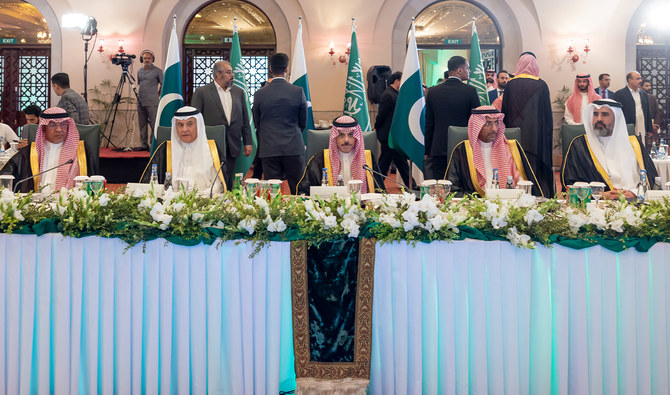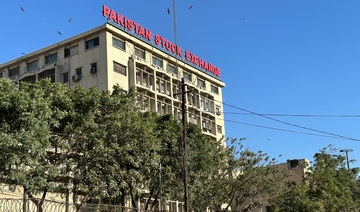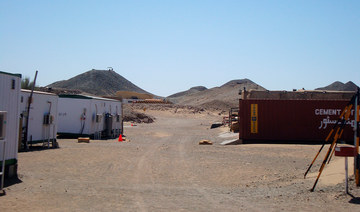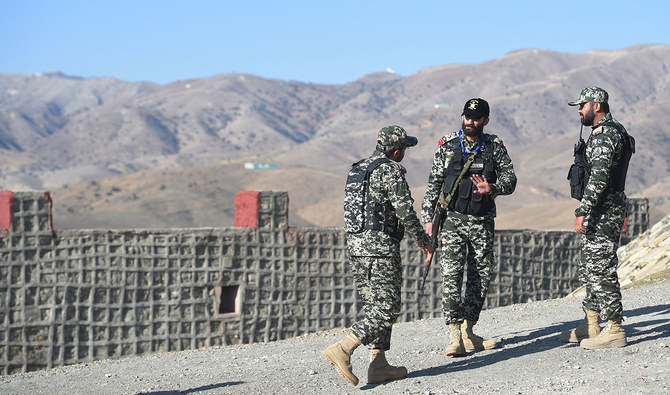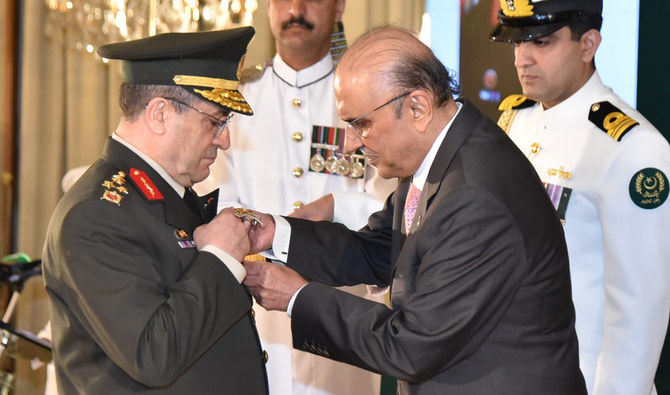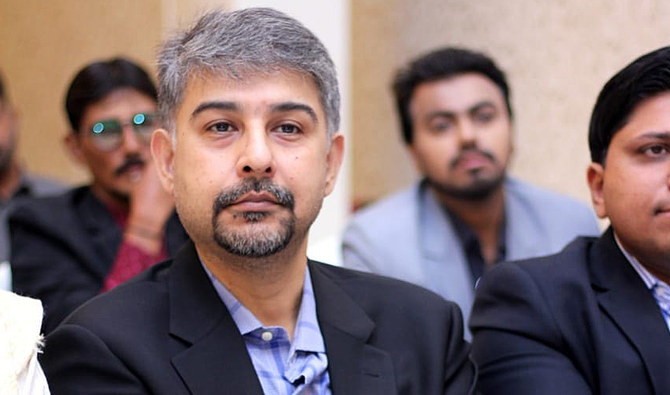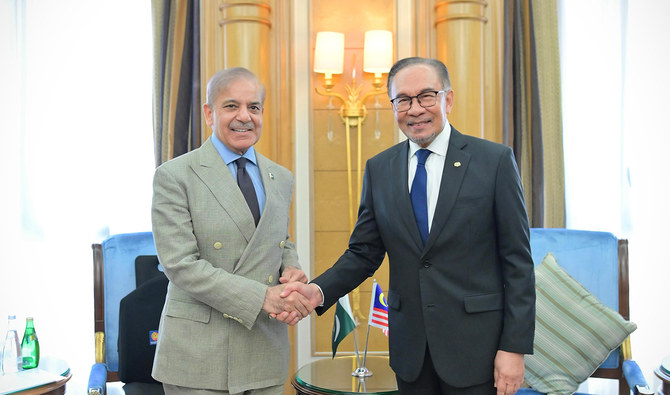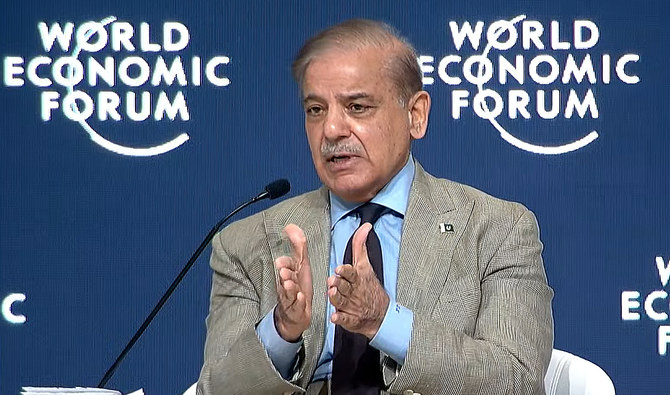ISLAMABAD: Saudi Arabia’s Foreign Minister Faisal bin Farhan Al Saud on Tuesday described his ongoing visit to Pakistan to discuss investments as “very, very positive” and said Islamabad’s focus on results and overcoming hurdles would deliver “significant benefits.”
Prince Faisal arrived in Pakistan on Monday on a two-day visit aimed at enhancing bilateral economic cooperation and pushing forward previously agreed investment deals. His trip comes a little over a week after Crown Prince Mohammed bin Salman met Prime Minister Shehbaz Sharif in Makkah and reaffirmed the Kingdom’s commitment to expedite investments worth $5 billion.
Pakistan and Saudi Arabia enjoy strong trade, defense and cultural ties. The Kingdom is home to over 2.7 million Pakistani expatriates and the top source of remittances to the cash-strapped South Asian country.
“We were extremely impressed by the very, very proactive attitude that we saw in our meetings, especially with the [Special] Investment [Facilitation] Council,” Prince Faisal said at joint press conference with his Pakistani counterpart Ishaq Dar. He was referring to a Pakistani civil-military council formed last year to oversee and fast-track all foreign investments.
“I feel very, very confident that the results of this visit and the results of the work being done between the two respective teams, with this attitude, with this approach of a focus on results, focus on overcoming hurdles, will deliver significant benefits,” the Saudi official added.
He said there was a “significant opportunity” for the Kingdom to increase its investments in Pakistan, adding that his engagements with Pakistani leaders had laid the groundwork for “significant and important work to be done” in the months ahead:
“There is a lot of untapped potential that is clear to everyone. It just needs to be tapped … And here, working together, we will do what we can with our colleagues in the government of Pakistan to make that happen.”
Pakistani foreign minister Dar said both sides had held comprehensive discussions covering various aspects of Pak-Saudi cooperation.
“We discussed ways and means to transform our fraternal cordial relations into a mutually beneficial strategic and economic partnership,” Dar said. “We greatly appreciate the keen interest of the leadership of the Kingdom of Saudi Arabia in enhancing investments in Pakistan.”
The Pakistani minister said Islamabad was committed to providing Saudi investors with full support, relevant safeguards and a conducive environment for investment.
PM SHARIF HAILS ‘VERY SATISFACTORY PROGRESS’ BETWEEN BOTH SIDES
Later at a dinner event in honor of the Saudi foreign minister at the Prime Minister’s Office, Sharif hailed the “very satisfactory progress” between the two sides during Prince Faisal’s visit.
“I am very happy to know that today’s discussion has taken place and there has been very satisfactory progress between the two teams, led by you,” Sharif said, referring to the Saudi foreign minister.
Sharif acknowledged that “Rome was not built in a day” but urged his team to be prepared to enhance economic cooperation with the Kingdom.
“We have to be ready in every sense of the word in terms of providing bankable propositions, feasibilities which are prepared by A-class consultants which are accepted internationally,” he said.
The Pakistani premier hoped the two sides would enhance their economic cooperation in the weeks ahead.
“And I’m sure that today’s discussions will usher into a new era of very close cooperation and in coming weeks and months, we will be able to sign, Insha’Allah, agreements worth millions of dollars,” he said.
MEETING WITH ARMY CHIEF
Prince Faisal met Pakistan’s army chief Syed General Asim Munir to discuss cooperation in various sectors, a press release by the army’s media wing said.
“Discussions centered on mutual interests and policies to further bolster bilateral cooperation across various sectors,” the Inter-Services Public Relations (ISPR) said. It said the Saudi foreign minister stressed exploring multiple avenues to reinforce bilateral Pakistan-Saudi Arabia ties.
“COAS [chief of army staff] reiterated full support for the delegation and conveyed his best wishes for mutually beneficial outcomes from the interaction for both states,” the statement added.
PAKISTAN-SAUDI INVESTMENT CONFERENCE
Earlier, the Saudi foreign minister held meetings with top civilian leadership including the prime minister, president and foreign minister to discuss economic opportunities and also co-chaired an investment conference. He is also expected to meet the army chief before departing for Riyadh.
“We aim to transform our traditionally fraternal ties into a strategic and economic partnership,” Dar said as he addressed a Pakistan-Saudi Arabia Investment Conference in Islamabad, held under the umbrella of SIFC.
“Your investments are not just financial commitments but are crucial in nurturing a deeply valued partnership,” Dar told the visiting dignitary.
Pakistan was blessed with fertile agricultural lands, minerals and a large and dynamic population, complemented by a flourishing IT sector and abundant prospects for renewable energy creation, the foreign minister added.
He said Pakistan’s fertile lands and a vast network of water resources presented numerous investment opportunities in agri-tech and food processing, with the South Asian nation having the potential to become the region’s food basket.
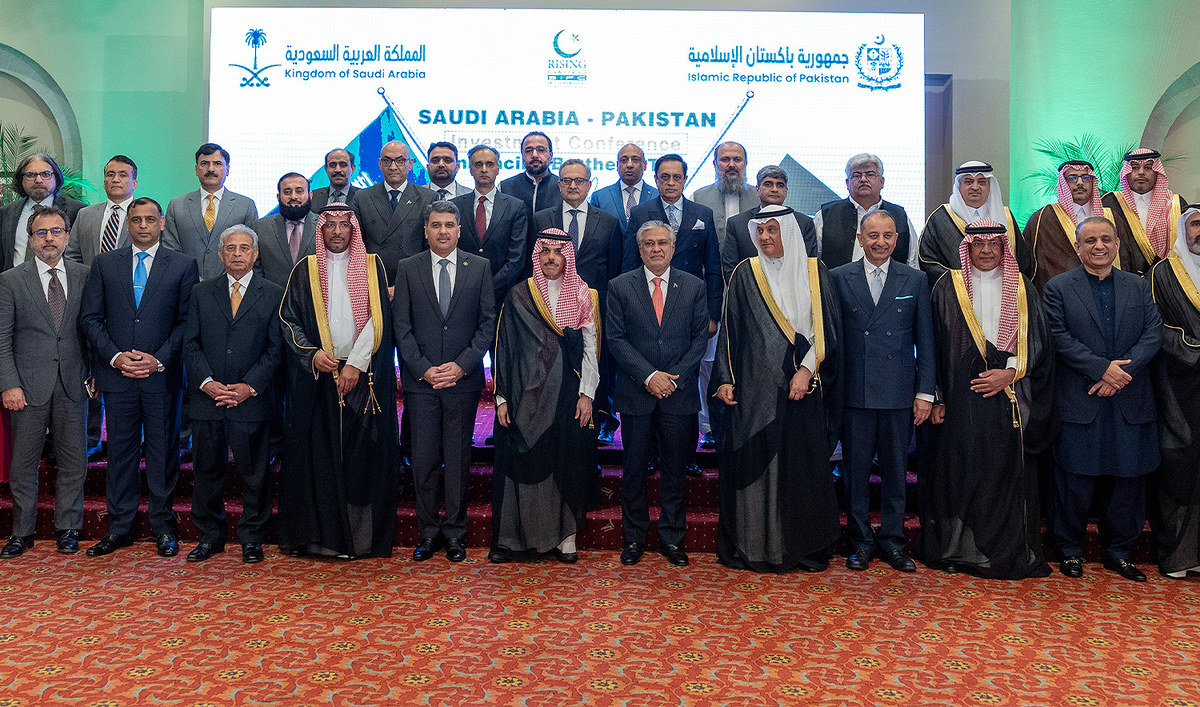
Saudi and Pakistani officials pose for a group picture after the Pakistan-Saudi Arabia Investment Conference in Islamabad, Pakistan on April 16, 2024. (@KSAMOFA/X)
“Our mining sector is marked by untapped potential especially in the expansive Tethyan belt known for its abundant deposits of copper, gold and other valuable minerals,” Dar said. “The strategic advancements in these areas are highlighted by projects such as Riko Diq copper [and gold] project which exemplifies our commitment to leveraging our natural resources for mutual benefit.”
On Sunday, Pakistani state media reported Saudi Arabia was likely to invest $1 billion in the mine project in Pakistan’s southwestern Balochistan province, one of the world’s largest underdeveloped copper-gold areas.
The foreign minister said Pakistan’s goal was to transform the country into a hub of economic activity, and innovation and create an attractive environment for global investors like Saudi Arabia.
“Investing in Pakistan is not merely a placement of capital. It would actually be instrumental toward forging a partnership that promises mutual prosperity and progress,” he concluded.
“Your engagement and investment in Pakistan will be handled with utmost respect and institutionalized commitment from our side, ensuring that together we achieve remarkable success.”
MEETINGS WITH PM AND PRESIDENT
Prince Faisal also met Pakistani PM Sharif on Tuesday who said the Saudi official’s visit would herald a “new era” of strategic and commercial partnerships between the two long-time allies.
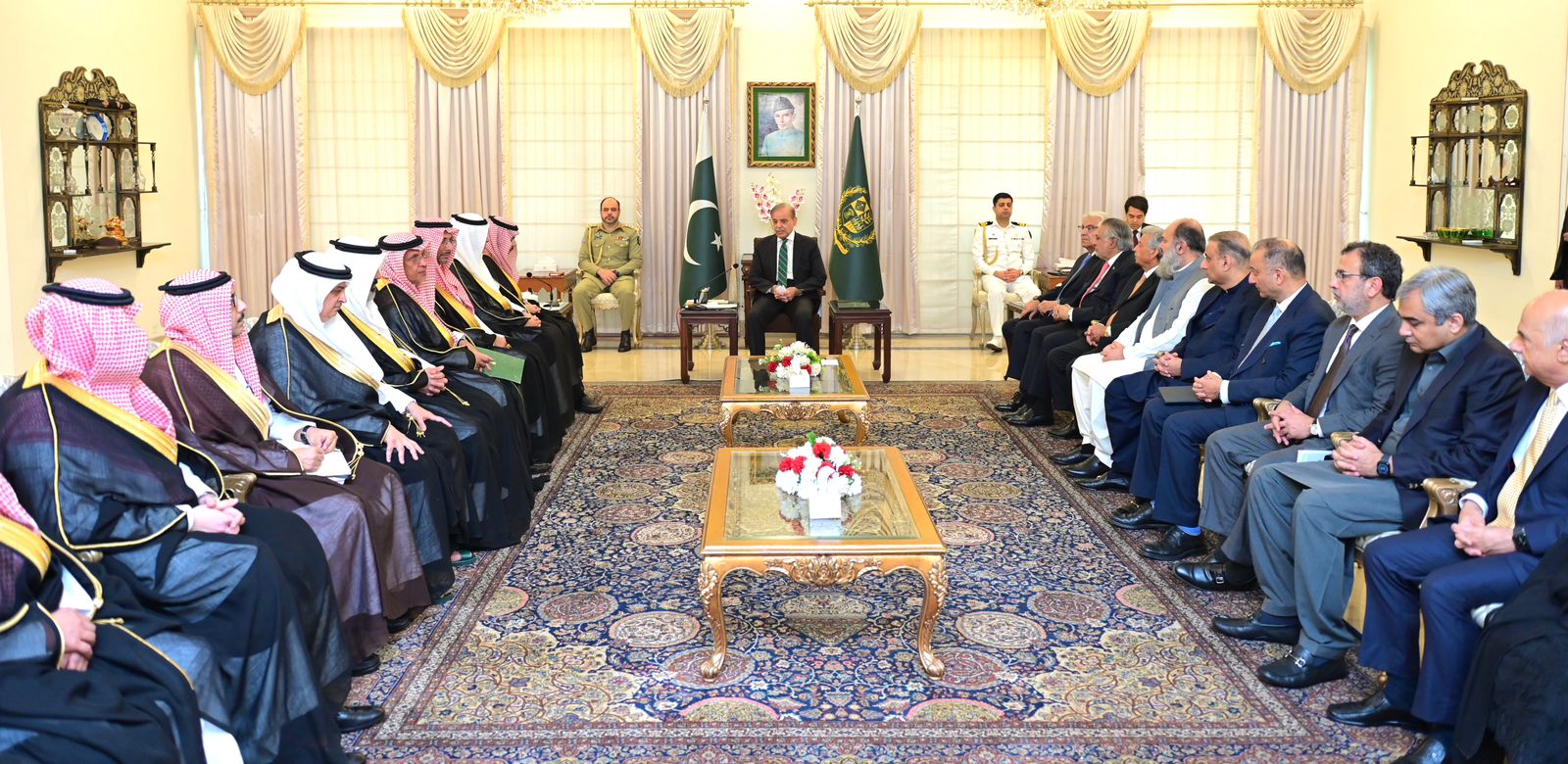
Pakistan Prime Minister Shehbaz Sharif (center) meets Saudi foreign minister Prince Faisal bin Farhan who is leading a high-level delegation in Islamabad, Pakistan on April 16, 2024. (PM Office)
“The visit is the beginning of a new era of strategic and commercial partnership between Pakistan and Saudi Arabia,” Sharif was quoted as saying in a statement from his office after he met Prince Faisal. “Pakistan wants to further promote cooperation in the fields of trade and investment between the two countries.”
The PM said Pakistan was taking steps to promote foreign investment and make partnerships “mutually beneficial” for allies, adding that Islamabad was grateful to the Saudi leadership for increasing investment.
Informing the Saudi delegation about the wide potential of investment in Pakistan, Sharif briefed them about the Special Investment Facilitation Council and measures the body was taking to promote investment.
Sharif also invited the Saudi crown prince to Islamabad.
“The people of Pakistan are looking forward to the visit of His Highness the Crown Prince Muhammad Bin Salman to Pakistan,” the PM’s office said.
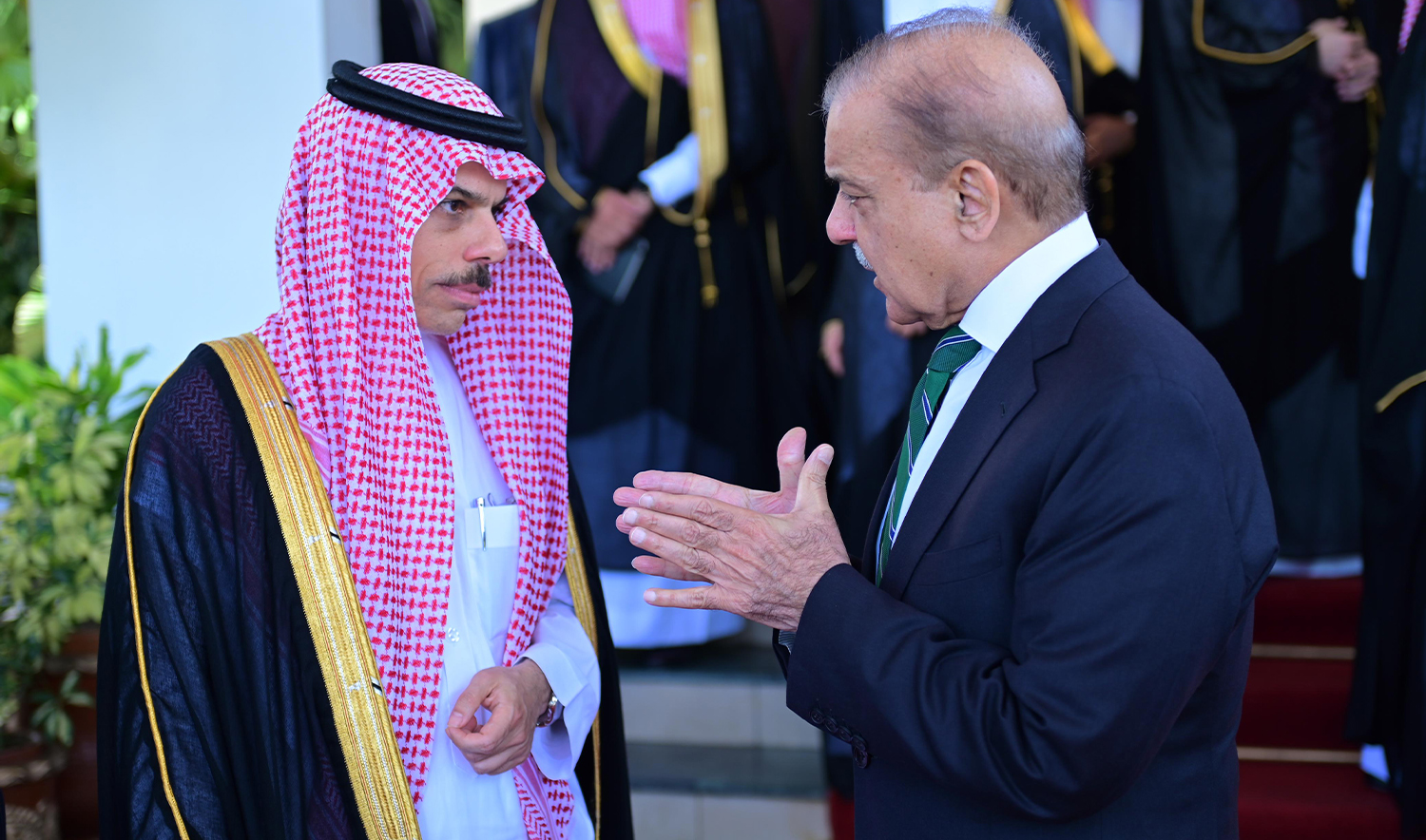
Pakistan Prime Minister Shehbaz Sharif (right) meets Saudi foreign minister Prince Faisal bin Farhan in Islamabad, Pakistan on April 16, 2024. (PM Office)
President Asif Ali Zardari and Prince Faisal also met on Tuesday and reiterated the two nations’ resolve to build a strong partnership and promote mutually beneficial economic cooperation.
Zardari said Pakistan was working to transform its long-standing and decades-old relationship with Riyadh into a “long-term strategic and economic partnership.”
The two sides also discussed regional dynamics and recent developments in the Middle East and called for an immediate and unconditional ceasefire in Gaza and an end to Israeli air and ground offensives there.
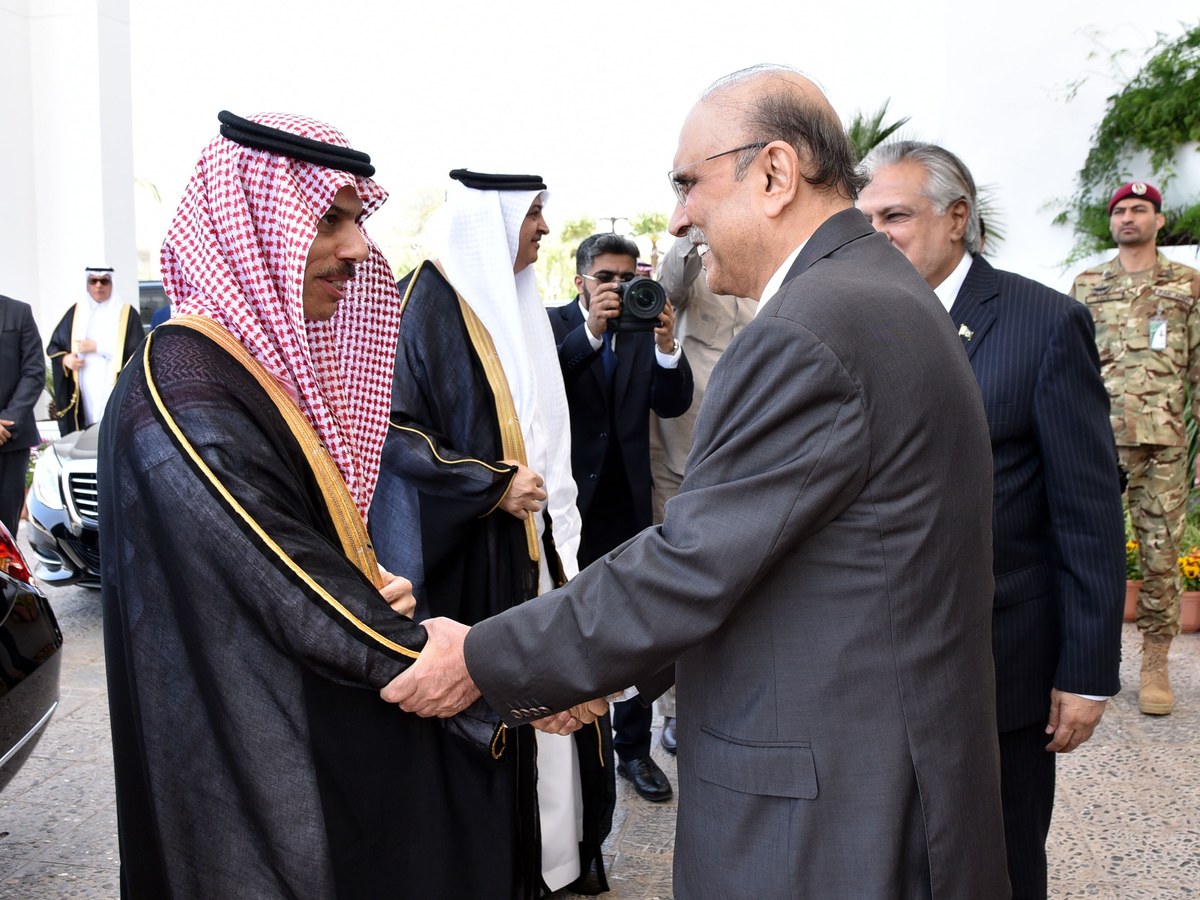
Pakistan's President Asif Ali Zardari meets Saudi Arabia's Foreign Minister Prince Faisal bin Farhan in Islamabad, Pakistan on April 16, 2024. (President's Office)
INVESTMENT PUSH
In a statement shared with media on Monday, the Pakistan information ministry said the Saudi delegation would consult with Pakistani officials “on the next stages of investment and implementation issues.”
Saudi Arabia’s planned investment in the Reko Diq gold and copper mining project would be discussed during the visit, the ministry said, adding that Riyadh was also interested in investing in agriculture, trade, energy, minerals, IT, transport and other sectors in Pakistan:
“As a result of this visit, Pakistan’s export capacity will increase, joint ventures will be launched and new opportunities will be paved.”
Cash-strapped Pakistan desperately needs to shore up its foreign reserves and signal to the International Monetary Fund (IMF) that it can continue to meet requirements for foreign financing that has been a key demand in previous bailout packages. Pakistan’s finance minister, Muhammad Aurangzeb, is currently in Washington to participate in spring meetings of the International Monetary Fund and World Bank and discuss a new bailout program. The last loan deal expires this month.
Saudi Arabia has often come to cash-strapped Pakistan’s aid in the past, regularly providing it oil on deferred payments and offering direct financial support to help stabilize its economy and shore up its forex reserves.
Last year, however, Saudi Arabia’s finance minister said the Kingdom was changing the way it provides assistance to allies, shifting from previously giving direct grants and deposits unconditionally and moving toward mutually beneficial investment deals backed by internal economic reforms.







